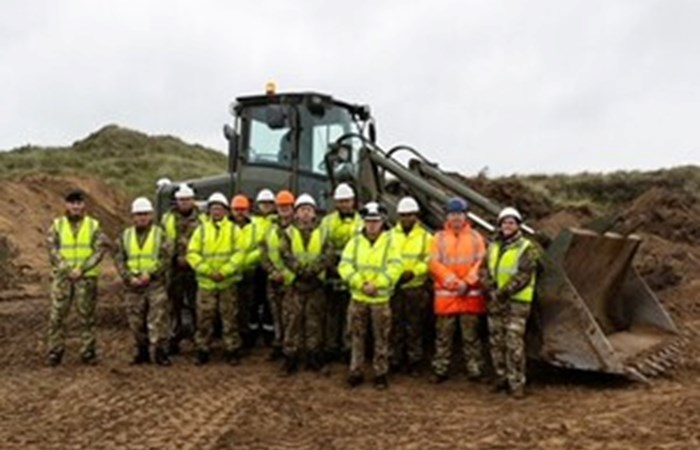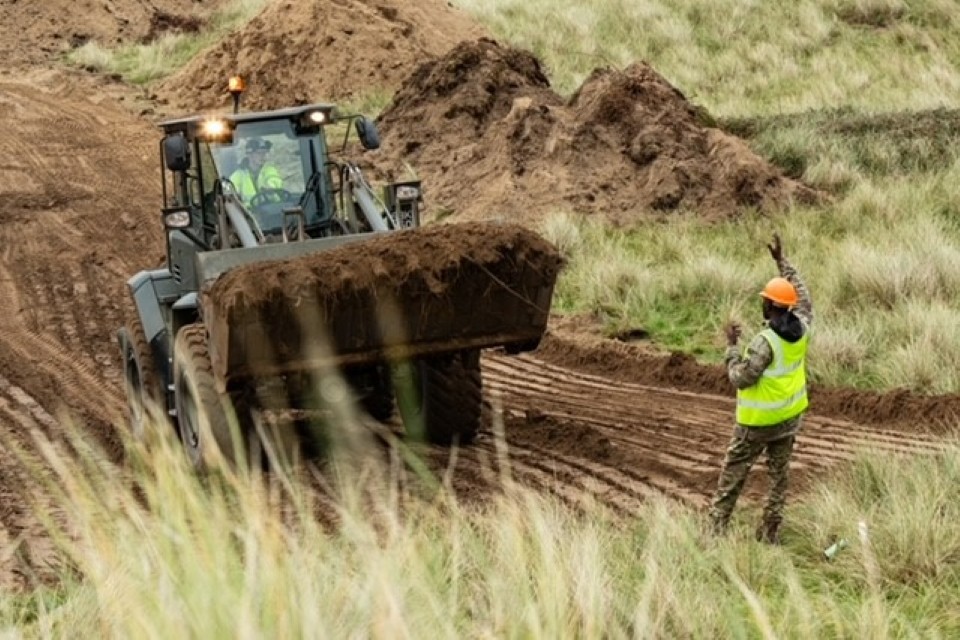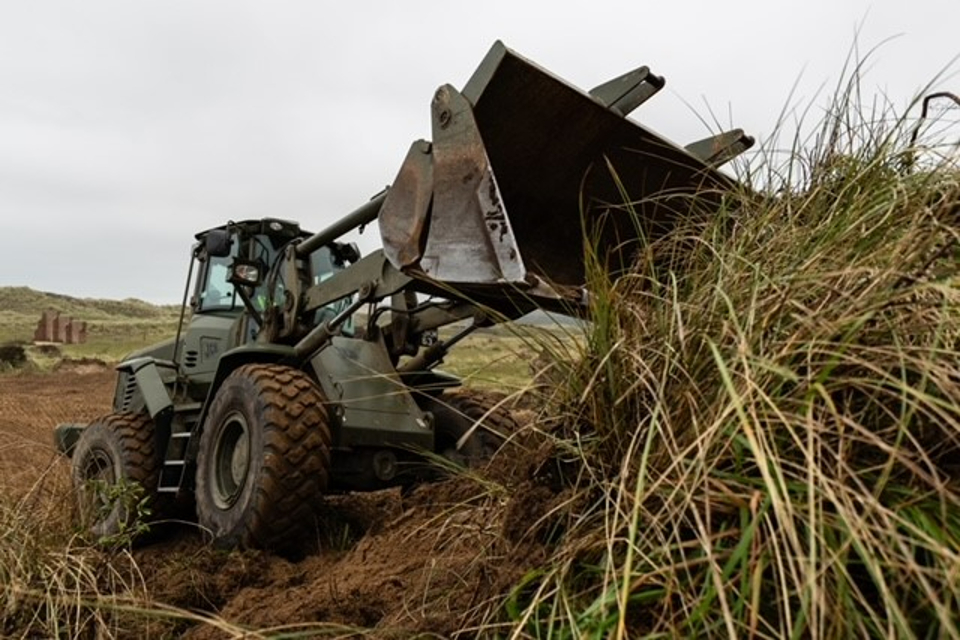Defence Infrastructure Organisation

Personnel from the British Armys 232 Port Squadron 165 Port, and Maritime Regiment Royal Logistic Corps, have taken part in a military training exercise at Penhale Training site. The exercise not only helps to develops their skills, but creates better conditions for sand dune wildlife in a Special Area of Conservation (SAC).This is the third time the work has been carried out.
Lt Col (Retd) Andrew Westcott, DIO Training Safety Officer for the Cornwall area, said:
The UK Defence Training Estate is home to a diverse range of habitats and wildlife species, many of which have been granted protected status. Through our collaborative work with Cornwall Wildlife Trust and the Army, were sustainably managing land used for military training, and balancing military needs with ecological conservation here at Penhale Training Area.
The large dune system at Penhale is home to a wealth of native wildlife, from reptiles like common lizards and adders, to delicate orchids, the rare silver-studded blue butterfly, and the silvery leafcutter bee (only found in sandy habitats). These species thrive in our coastal landscapes, with lots of bare sand for burrowing and hunting, and low grassland for hiding or producing flowers.
Like many of the coastal dune systems in Europe, Penhale Dunes SAC currently faces significant biodiversity loss. Areas of bare sand and low grassland are becoming smaller and further apart, and fast-growing scrubby vegetation is overtaking the landscape, encouraged by the loss of natural grazing and nitrogen increases. As the bare sand and low grass habitat areas shrink, dune plants and animals are the first to suffer.
As part of a machinery training programme, four 16-tonne military diggers were used by a team from the Regiment to remove areas of overgrown scrub, and expose bare sand on Penhales overgrown dunes.

One of the diggers and the team at work at Penhale. Copyright: Pte Hal Gamble.
The work helps to re-balance habitats within the dune system at Penhale, targeting blocks of Blackthorn scrub for removal. Blackthorn can form large stands that displace other vegetation, but it can be useful as a nesting habitat and a shelter for rabbits, an important grazing animal on the dunes.
Jon Cripps, Penhale Dunes Ranger at Cornwall Wildlife Trust, and manager of dune restoration with Dynamic Dunescapes, said:
The success of the last two years work, which has significantly reduced the cover of thick blackthorn scrub, has encouraged us to carry out the same work again. Removing an amount each year helps to keep things in balance, and the areas that have been cleared so far are becoming vegetated with sand dune flora.
Great mullein is continuing to colonise the area, adding a splash of vibrant yellow. Rest harrow is also now present, which is fantastic.
As we continue to carry out this type of work, we are adding to habitat diversity across the dune system, creating niches in which pioneering plants thrive; great news for the flora and fauna in the area.

One of the military diggers at work. Copyright: Pte Hal Gamble.
Major John Porter, Officer Commanding for 232 Port Squadron, said:
Were really pleased to be able to continue to support the Cornwall Dynamic Dunescapes Project at Penhale Training Area.
This exercise has enabled our team to train and practice our key skills: by removing the scrub through excavation and the strictly-controlled grading of sand in the previously scrub-covered areas, we used equipment that often supports major operations around the world.
Were also helping to reduce the carbon footprint of the work by conducting our training in the local area close to where our Regiment is based.
There are currently four more years of work planned in the area. Towards the end of the fourth year, a review will take place to assess the land cover of each dune habitat type, and a decision will be made about the next steps.
The work at Penhale Dunes is part of Dynamic Dunescapes, an ambitious conservation project aiming to restore 7,000 hectares of sand dune in England and Wales, funded by National Lottery Heritage Fund and
